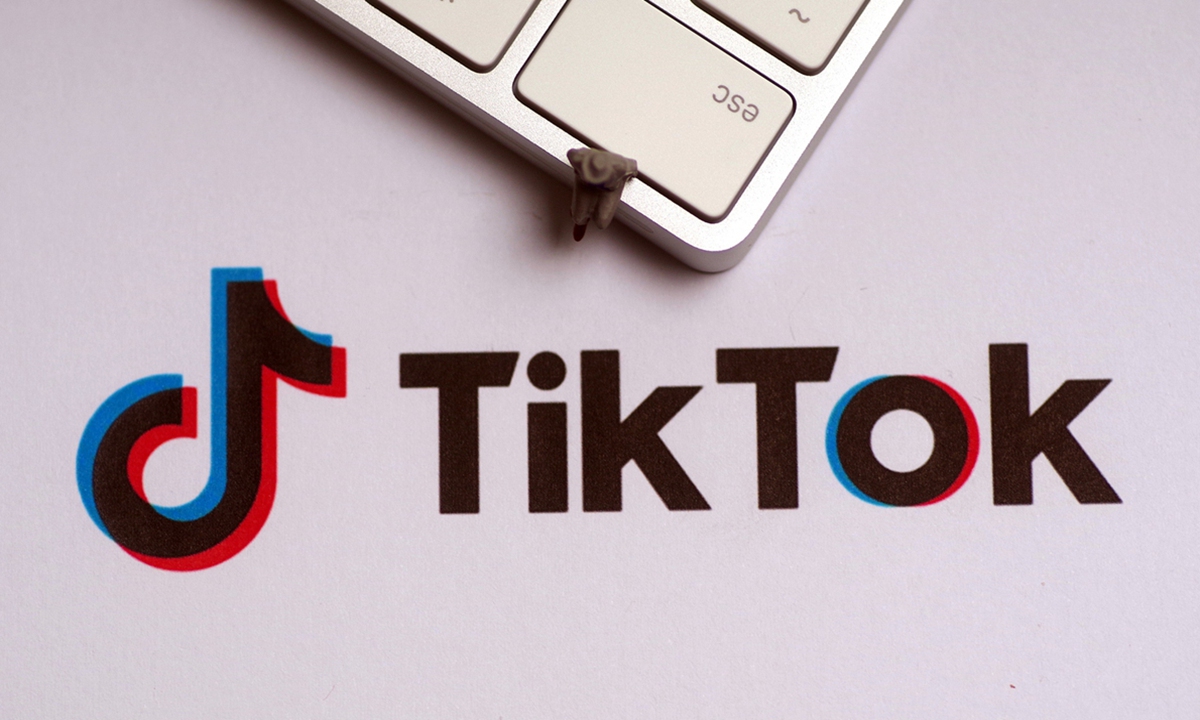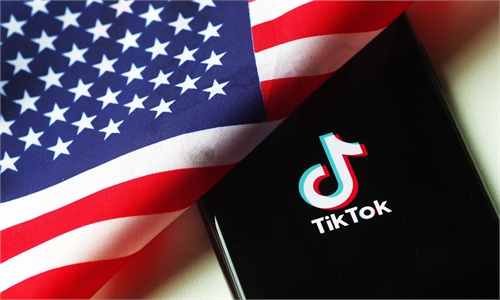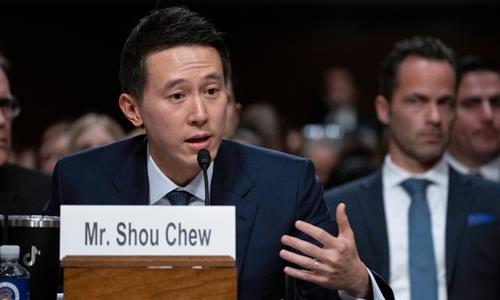
Photo: VCG
It seems that the EU is cementing its leadership as the primary regulator of tech giants, but to truly uphold fair digital competition and safeguard internet users from illegal online content, it needs to eliminate ideological bias in policy decisions concerning Chinese companies like TikTok.The EU has launched a formal investigation into whether TikTok has breached the Digital Services Act (DSA) that is designed to keep internet users safe online, an official said on Monday. This could put the social media platform at risk of a hefty fine, according to a Reuters report.
Some may see the move as part of the bloc's continuous effort to put big tech platforms under tougher regulatory scrutiny and better police online content, but since TikTok has been in the spotlight in the Western geopolitical storm, it is hard to tell whether geopolitics is behind the investigation.
Most of the world's most famous tech giants, such as Amazon, Intel, Microsoft, Google and Apple, have been penalized by the EU with huge fines over the years. The latest news is that the bloc is set to fine Apple about 500 million euros ($539 million) over alleged breaches of EU competition law, the Financial Times reported. Against such backdrop, and after the DSA and the Digital Markets Act took effect, it seems reasonable for a platform as popular as TikTok to be subject to a probe under the DSA that applies to all platforms.
But still we will keep a close eye on the EU investigation into TikTok to see if the new EU rules will be used as an ideological tool to squeeze the development space of Chinese companies in the EU. This is because some European politicians have made no secret of their ideological bias against China, and TikTok's success in Western markets has made it an easy target for crackdowns on grounds of "national security," even though there is no evidence to prove these so-called risks.
For instance, in February 2023, the European Parliament, the European Commission and the EU Council banned TikTok from staff phones due to concerns about the company, Reuters reported.
At a time when some EU politicians try to put ideological considerations above all issues, there seems to be every reason to be concerned and skeptical as to whether the EU's digital regulation will become another political tool targeting Chinese companies. Such political uncertainty is not good for either TikTok or EU regulators.
If the EU digital regulation rules could be bent to suppress TikTok for political or ideological reasons, it will set a bad precedent for future regulatory enforcement, as a political or ideological backdoor in the digital regulation process could compromise fair competition and internet users' interests in the digital realm.
The political headwinds TikTok is facing in European markets are just the tip of the iceberg of EU politicians giving priority to ideological values and generalization of the concept of security on China-related issues.
Given their distinct political systems and historical traditions, ideological differences between China and the EU are unavoidable. It is regrettable to see some anti-China forces with ulterior motives take advantage of these ideological differences to play up "threats" or "risks" when it comes to almost every area of cooperation between China and the EU.
Over the years, some anti-China forces have repeatedly played up the "national security threat," creating artificial barriers in 5G application, commercial investment and technological cooperation between the two sides. No matter what ideological bias and malice they have toward China, their actions are actually digging the EU into a hole.
Moreover, some EU politicians have talked about "de-risking" when it comes to trade with China, which is also mixed with ideological considerations. Given the wide coverage and scale of China-EU trade, the "de-risking" process itself is a risk for both sides. If the EU fails to eliminate ideological thinking in its cooperation with China, it will pose a risk not only to the normal development of bilateral trade, but also to the EU economy itself.



